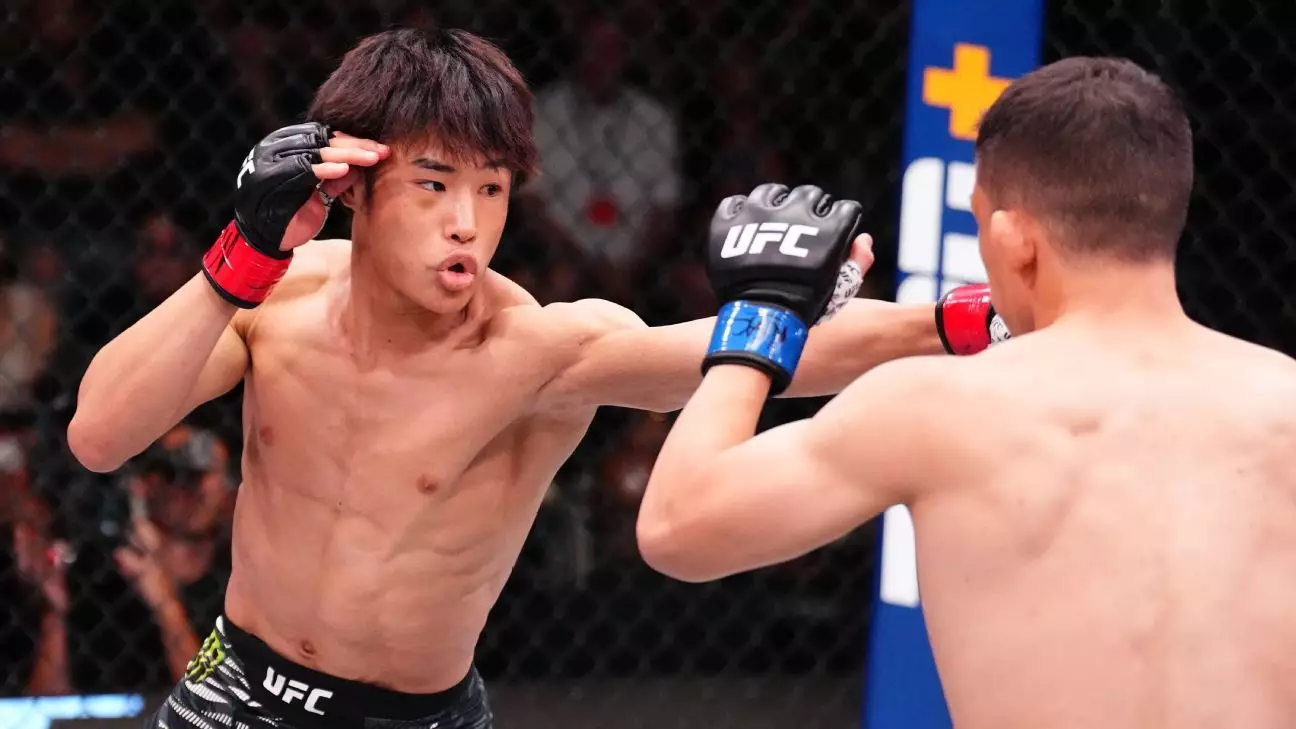Tatsuro Taira’s recent victory serves as a testament to the importance of resilience in professional MMA. After experiencing his first career loss in October—a split decision that left some doubt about his trajectory—the 25-year-old Japanese prodigy responded with remarkable determination and strategic brilliance. His assured performance against HyunSung Park not only validated his skills but also underscored the mental toughness necessary for sustained success in such a grueling sport. In combat sports, setbacks can often crush fighters’ confidence; however, Taira exemplified how to rebound stronger, transforming doubt into motivation. His ability to put aside the disappointment from his first defeat and emerge victorious highlights that true fighters are defined not just by their wins, but by how they handle adversity.
Adapting on Short Notice: The Significance of Flexibility and Readiness
One of the most striking aspects of Taira’s latest outing was the short-notice nature of his opponent switch. Originally slated to face Amir Albazi, Taira was faced with an unplanned challenge when Albazi withdrew due to undisclosed medical reasons. The UFC swiftly rescheduled him to fight HyunSung Park, a different competitor with a different style. This sudden change demanded not only physical readiness but also mental quickness and adaptability. Far too often, fighters perform poorly when thrown off their game plan; yet Taira demonstrated exceptional composure and tactical intelligence. His swift execution—dropping Park with a precise right hand moments into the fight and then immediately progressing to a dominant grappling position—exemplifies what true professionalism looks like. Such adaptability can often be the difference between victory and defeat, and Taira’s performance reinforces the importance of mental agility in high-stakes combat sports.
Strategic Excellence and Technical Supremacy
Throughout the fight, Taira showcased a clear technical edge, exploiting gaps in Park’s defense with calculated precision. From the outset, his striking set the tone, dropping Park early in the contest and controlling the pace. More impressively, Taira’s grappling—particularly his relentless pursuit of submissions—highlighted his well-rounded skill set. His ability to transition seamlessly from striking to ground control underscores an advanced understanding of mixed martial arts. Notably, his finishing move, the face crank, is a testament to his submission prowess, extending his record to eight wins by submission. Taira’s recognition as the division’s best finisher since 2022 emphasizes that he is not just a flashy boxer or wrestler, but a comprehensive MMA artist with the capacity to dictate the outcome of fights on multiple levels. His dominance against Park confirmed his status as a serious contender and showcased his potential to ascend even higher within the UFC rankings.
The Future of Taira: From Resilience to Reign
Looking ahead, Taira’s trajectory appears poised for continued upward mobility. His ability to overcome setbacks, adapt to unexpected circumstances, and execute with precision positions him as a fighter to watch in the coming years. Had he faced Albazi, a top-tier opponent, the result could have further clarified his standing among the division’s elite; instead, his victory over Park reaffirmed his readiness to challenge even more formidable contenders. With a UFC record now at 7-1 and a reputation for finishing fights decisively, Taira has the tools not just to climb the rankings but to become a champion. His resilience and technical mastery suggest that his potential is limitless—so long as he maintains his focus and continues honing his craft, the flyweight division may soon witness a new power player emerge.

